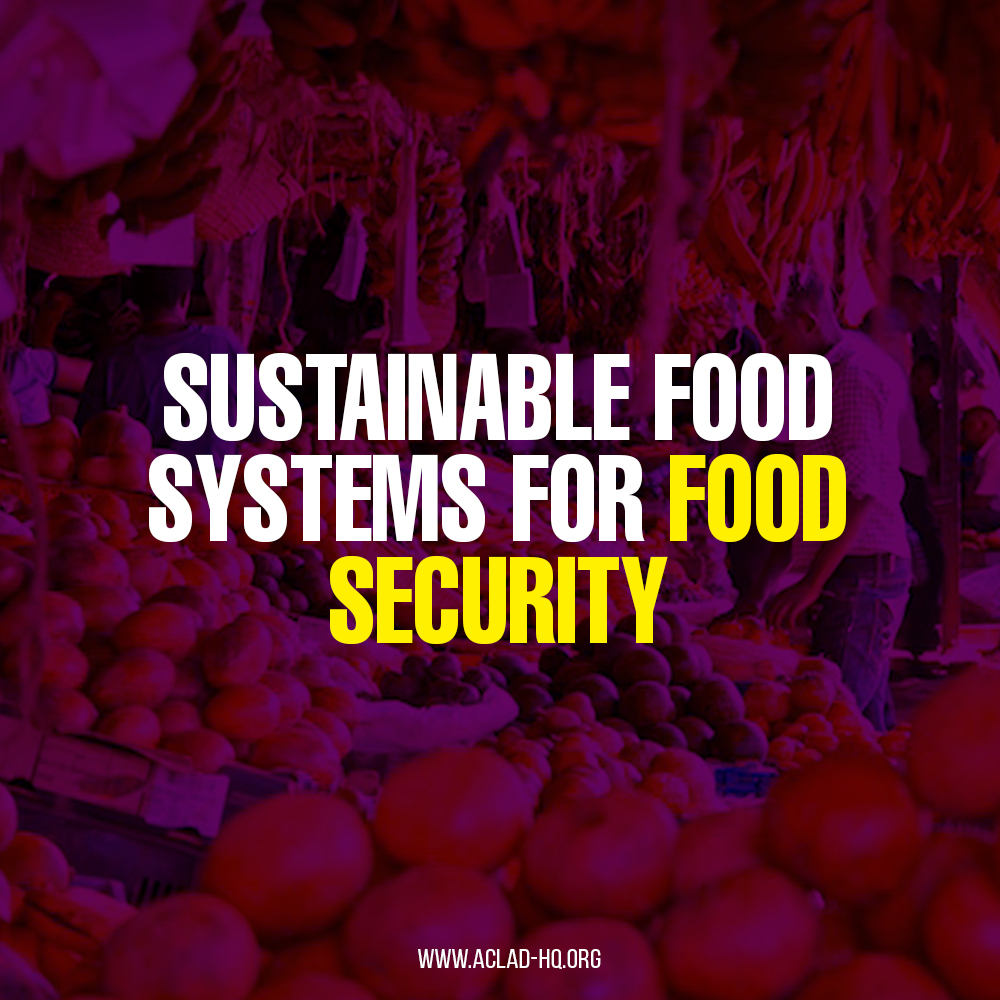Sustainable food systems for food security

The United Nations (UN) General Assembly[1] proclaimed 2016–2025 the United Nations Decade of Action on Nutrition on 1 April 2016 as an extraordinary opportunity for addressing all forms of malnutrition. In addition, there were set Sustainable Development Goals set to be achieved by 2030 and those addressing nutrition are Sustainable Development Goal (SDG) 2 to end hunger, achieve food security and improved nutrition and promote sustainable agriculture and SDG 3 to ensure healthy lives and promote wellbeing for all at all ages. Towards achieving and addressing malnutrition, the World Health Organization, in conjunction with the United Nations Food and Agriculture Organization (FAO) called for policy actions in six areas, the first of which was creating sustainable, resilient food systems for healthy diets.
But what is a sustainable food system? FAO[2] describes it as a type of food system that provides healthy food to people and creates sustainable environmental, economic and social systems that surround food. In other words, sustainable food systems purpose to attain safe and nutritious foods for healthy diets while at the same time improving the socio-economic well-being of communities and limiting negative environmental impact. One way of achieving this food system is through the practice of sustainable agricultural practices which protect the environment as well as maintain and improve soil fertility through conservation agriculture. ACLAD has been enhancing sustainable conservation agriculture skills among communities in Western Kenya by providing insight training and practical conservation agriculture practices like minimal tillage, use of compost manure and fertilizers, cover crops and appropriate user-friendly technology. Utilizing these sustainable agricultural techniques ensures improved food production that can be done for longer periods with benefit to generations on end.
The concept of sustainable food systems and diets plays an important role in ensuring availability of enough high quality, nutritious food which the entire population whether locally or globally can comfortably access. It also promotes the health and wellbeing of the community while at the same time protecting the environment from degradation and pollution.
All in all, achieving a healthy and sustainable food system is an urgent matter that depends on the governments, private and public sectors, as well as individuals working together for the betterment of all.
Catherine Muteithia
ACLAD Media Consultant
[1] https://www.who.int/news-room/fact-sheets/detail/malnutrition
